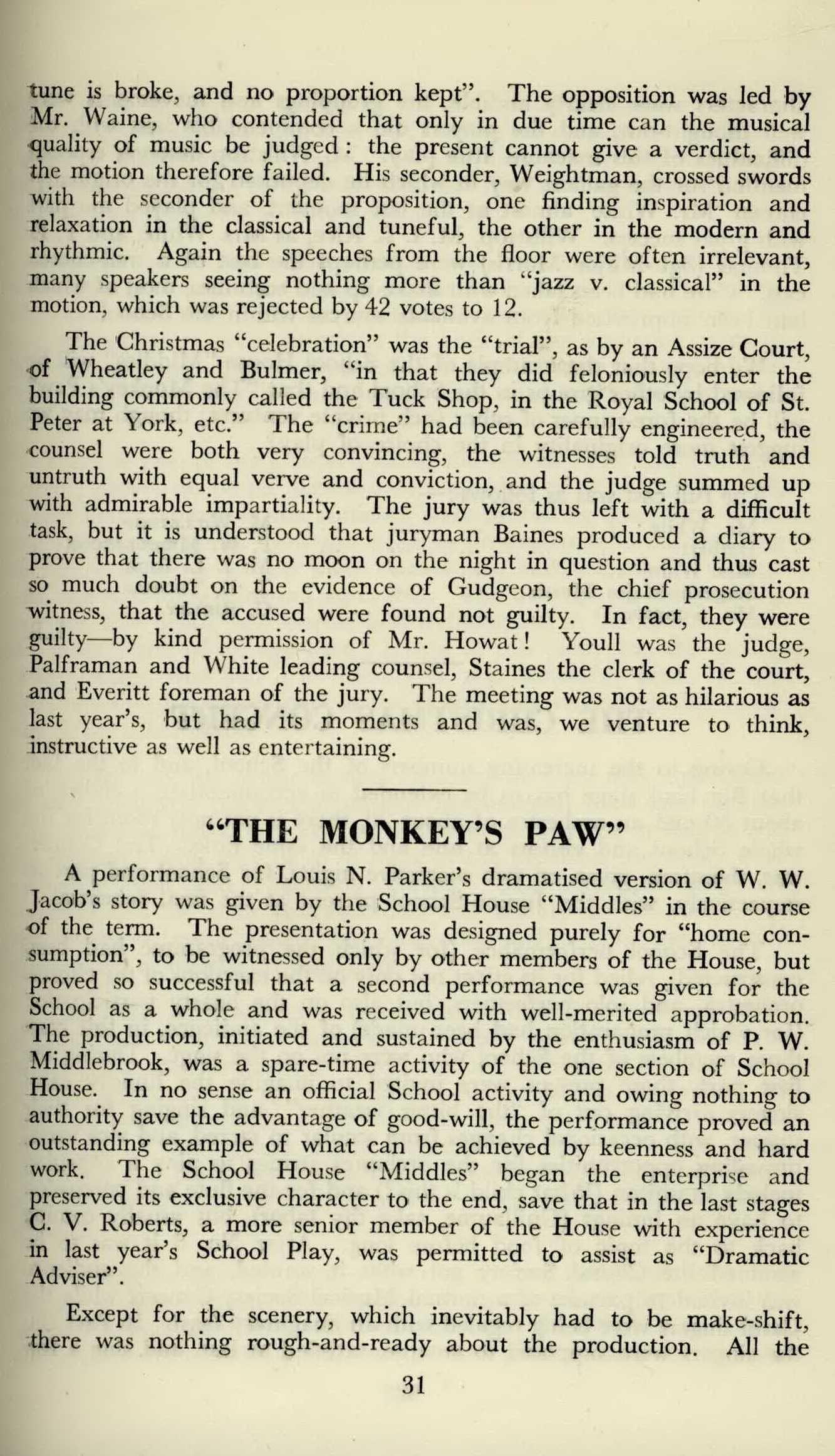
2 minute read
"The Monkey's Paw"
from Jan 1952
by StPetersYork
tune is broke, and no proportion kept". The opposition was led by Mr. Waine, who contended that only in due time can the musical quality of music be judged : the present cannot give a verdict, and the motion therefore failed. His seconder, Weightman, crossed swords with the seconder of the proposition, one finding inspiration and relaxation in the classical and tuneful, the other in the modern and rhythmic Again the speeches from the floor were often irrelevant, many speakers seeing nothing more than "jazz v. classical" in the motion, which was rejected by 42 votes to 12.
The Christmas "celebration" was the "trial", as by an Assize Court, of Wheatley and Bulmer, "in that they did feloniously enter the building commonly called the Tuck Shop, in the Royal School of St. Peter at York, etc." The "crime" had been carefully engineered, the counsel were both very convincing, the witnesses told truth and untruth with equal verve and conviction, and the judge summed up with admirable impartiality. The jury was thus left with a difficult task, but it is understood that juryman Baines produced a diary to prove that there was no moon on the night in question and thus cast so much doubt on the evidence of Gudgeon, the chief prosecution witness, that the accused were found not guilty. In fact, they were guilty—by kind permission of Mr. Howat ! Youll was the judge, Palframan and White leading counsel, Staines the clerk of the court, and Everitt foreman of the jury. The meeting was not as hilarious as last year's, but had its moments and was, we venture to think, instructive as well as entertaining.
A performance of Louis N. Parker's dramatised version of W. W. Jacob's story was given by the School House "Middles" in the course of the term. The presentation was designed purely for "home consumption", to be witnessed only by other members of the House, but proved so successful that a second performance was given for the School as a whole and was received with well-merited approbation. The production, initiated and sustained by the enthusiasm of P. W. Middlebrook, was a spare-time activity of the one section of School House. In no sense an official School activity and owing nothing to authority save the advantage of good-will, the performance proved an outstanding example of what can be achieved by keenness and hard work. The School House "Middles" began the enterprise and preserved its exclusive character to the end, save that in the last stages C. V. Roberts, a more senior member of the House with experience in last year's School Play, was permitted to assist as "Dramatic Adviser".
Except for the scenery, which inevitably had to be make-shift, there was nothing rough-and-ready about the production. All the 31










